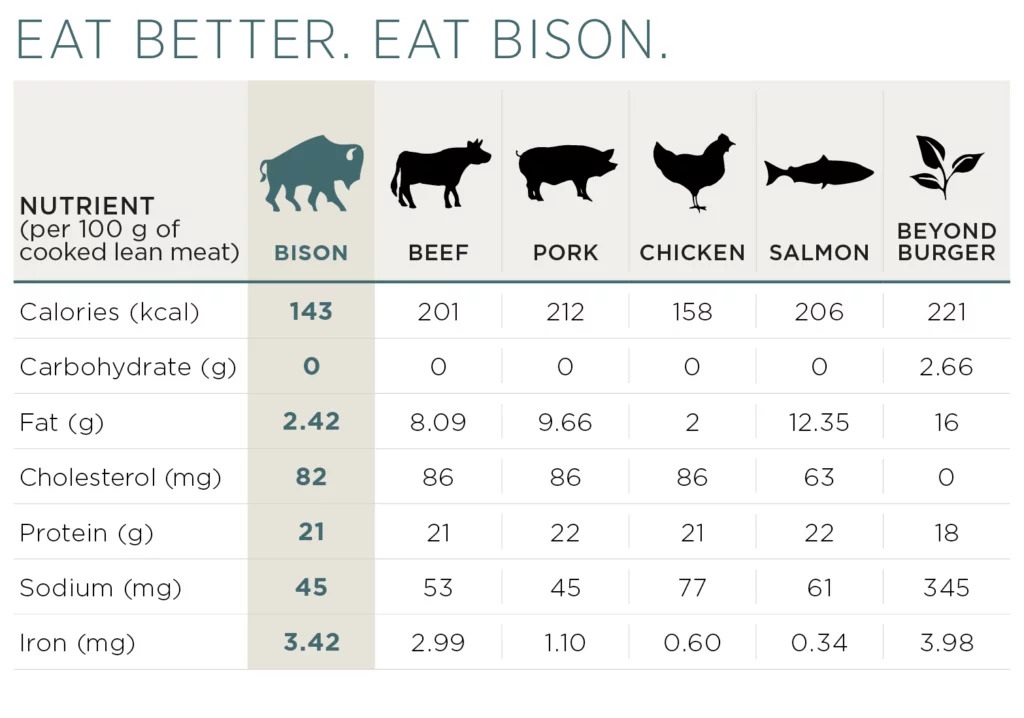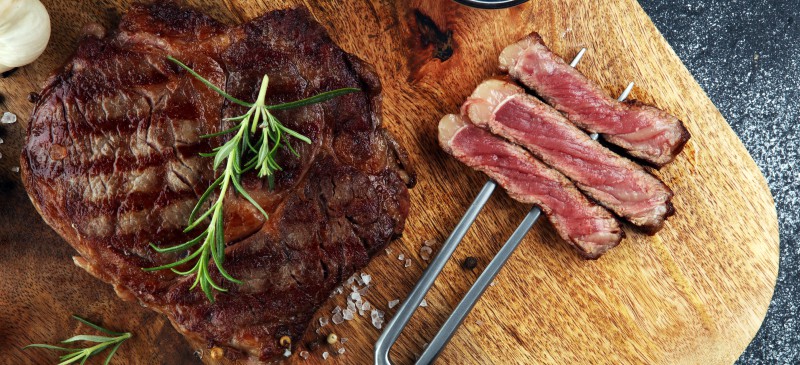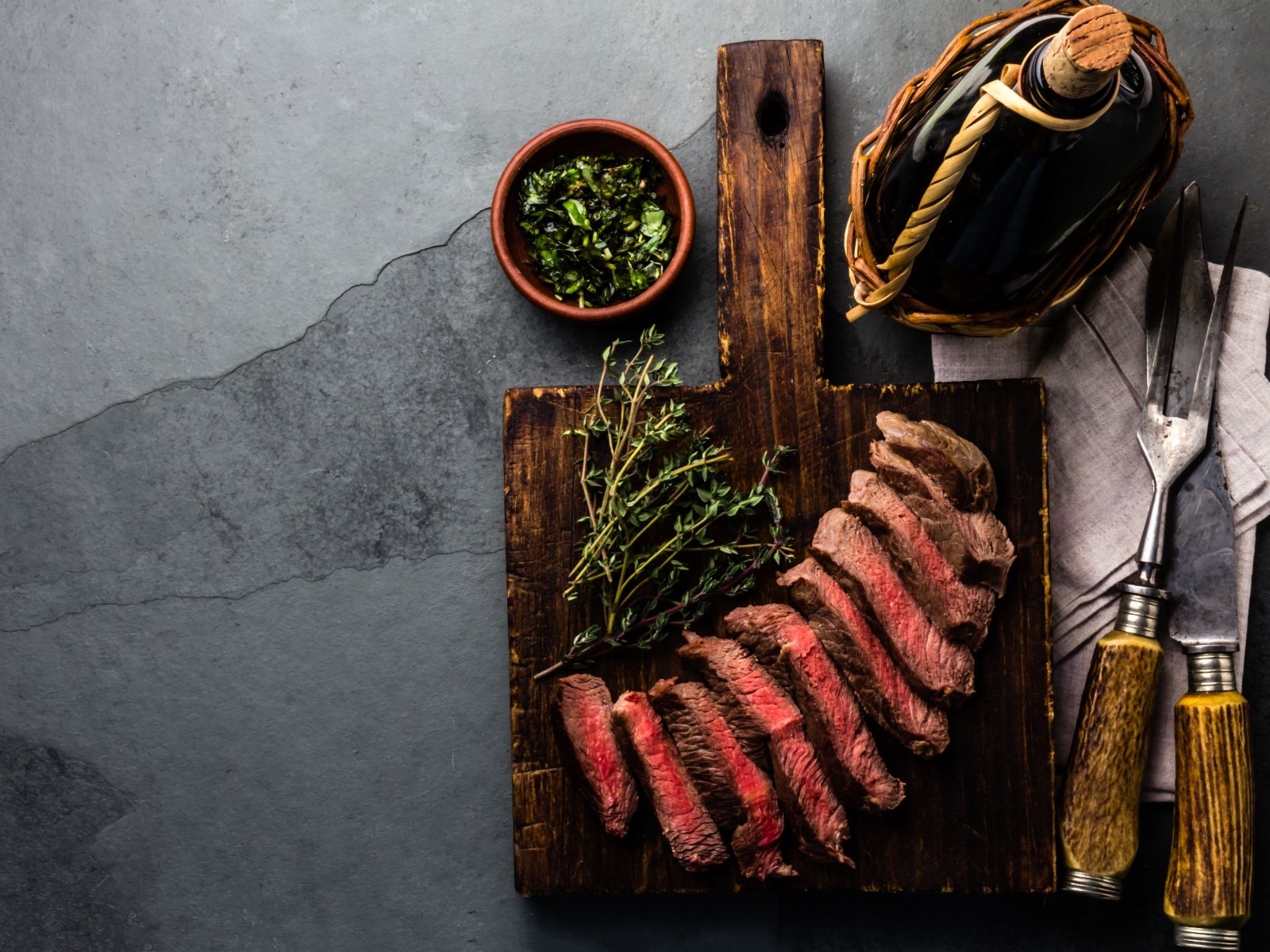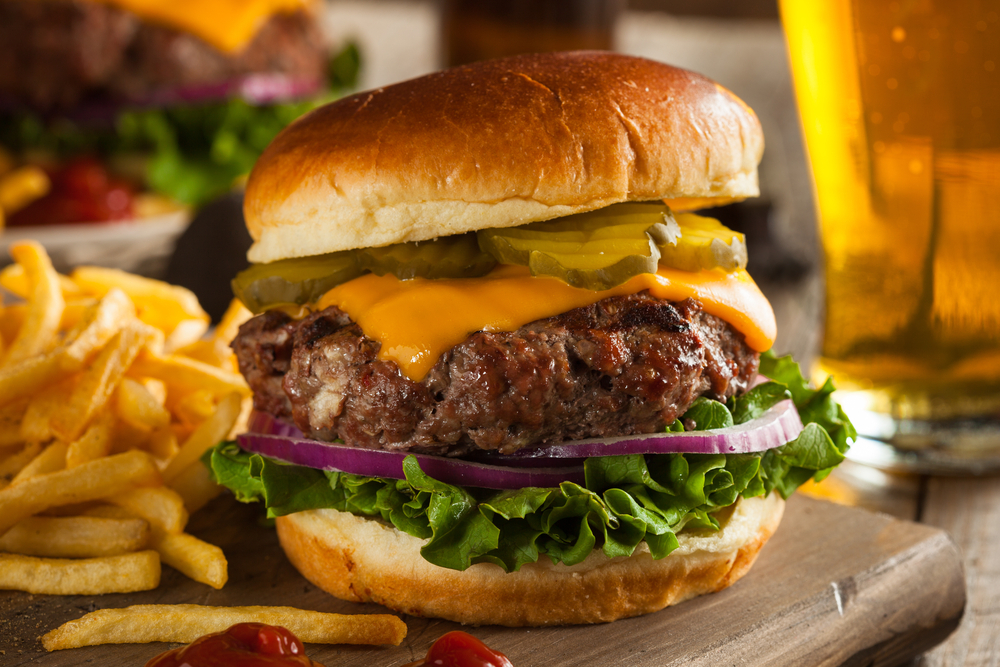Your diet and general well-being should become a top priority as you age. For this reason, we’ve been upping the amount of Bison in our diet. Bison has a flavor of its own: sweet, rich, and grassy finish. Please stay tuned for (More on Slow cooking yields the most incredible flavor and texture.
Bison has the same health advantages as chicken and fish but has the unbeatable flavor of organic grass-fed, grass-finished red meat. If you want to know more about the differences in our food, check out our nutritional comparison.
Table of Contents
Bison Meat Is Beneficial To Your Health
The nutritional benefits of wild bison meat are numerous.

An Abundant Supply of Protein
Bison has one of the highest protein concentrations compared to other typical meat varieties.
The protein content of 100g of raw Bison is 20.2. This amounts to just 146 calories. Bison is usually at least 90% lean, mainly due to its high protein content. Bison is an excellent option for those who wish to maximize the protein content of their meat.
Like all other types of meat, Bison is a “complete protein,” meaning it provides an adequate amount of each of the nine essential amino acids. Bison is an excellent option for consuming a high-quality, easily assimilated protein.
It’s a great way to get your B vitamins
Bison has a high concentration of all B vitamins, but cobalamin, sometimes known as vitamin B12, is especially abundant. Vitamin B12 stands out among these vitamins as particularly crucial due to the widespread prevalence of vitamin B12 insufficiency. Researchers in Germany showed that 27.3% of the elderly had insufficient vitamin B12 in their bodies.
The amount of vitamin B12 in an 8-ounce (227-gram) bison steak is 93% of the RDA. B vitamins are necessary for several bodily processes, including energy generation, healthy brain and nervous system functioning, and good general health.
Reduced Calorie Content
Firstly, a food being low in calories does not reflect that food’s relative health characteristics.
A candy bar, for instance, has fewer calories than an avocado but still needs to be a perfect food option. However, choosing foods that are lower in energy density might be crucial in some contexts, spencer hospitaltc such as when trying to cut calories and drop pounds.
One serving of beef tenderloin, 8 ounces (227 grams), contains 735 calories. Conversely, Bison has only 406 calories per pound, so there’s a significant disparity. As an alternative to higher-calorie cuts of meat, Bison provides the same or similar levels of essential elements.
There may be a benefit to everyone watching due to the high nutrient density.
It contains a high concentration of selenium

Bison provides one of just two sources of the mineral selenium. Significant selenium dietary sources include bison meat, which provides 44% of the RDI per 100 grams of cooked weight.
The antioxidant properties of selenium are among its many important physiological roles. Therefore, selenium may offer protection from oxidative stress and chronic inflammation/disease conditions.
As a general rule, animals are pasture-raised
Although it is not specifically a “health benefit,” the fact that Bison are reared on pasture has various favorable consequences. As previously noted, it may boost the concentration of essential elements such as CLA and omega-3.
Less fat is found in grass-fed animals, which could benefit those watching their caloric intake. Bison grazing in a herd (and in their natural habitat) are unquestionably happier than feedlot animals, which is an ethical consideration.
High in Iron and Zinc Content
Bison meat is rich in selenium, iron, and zinc, as we discussed earlier. Among iron’s many roles in the body is its facilitation of energy metabolism and the transportation of oxygen. Zinc, like iron, is a vital mineral necessary for normal immunological function and healthy growth and development. Hundreds of enzymatic activities in the body can’t happen without zinc.
The zinc content of a cooked 8 oz (227 gram) bison steak is 72% of the RDI, and the iron content is 41% of the RDI.
Conclusion
In addition to its historical and cultural significance in North America, Bison also offers unique health benefits. This article covered some of the unexpected positive effects of eating Bison on your health. We appreciate you taking the time to read this, and we hope you found it interesting. Welcome, and we appreciate your interest.


